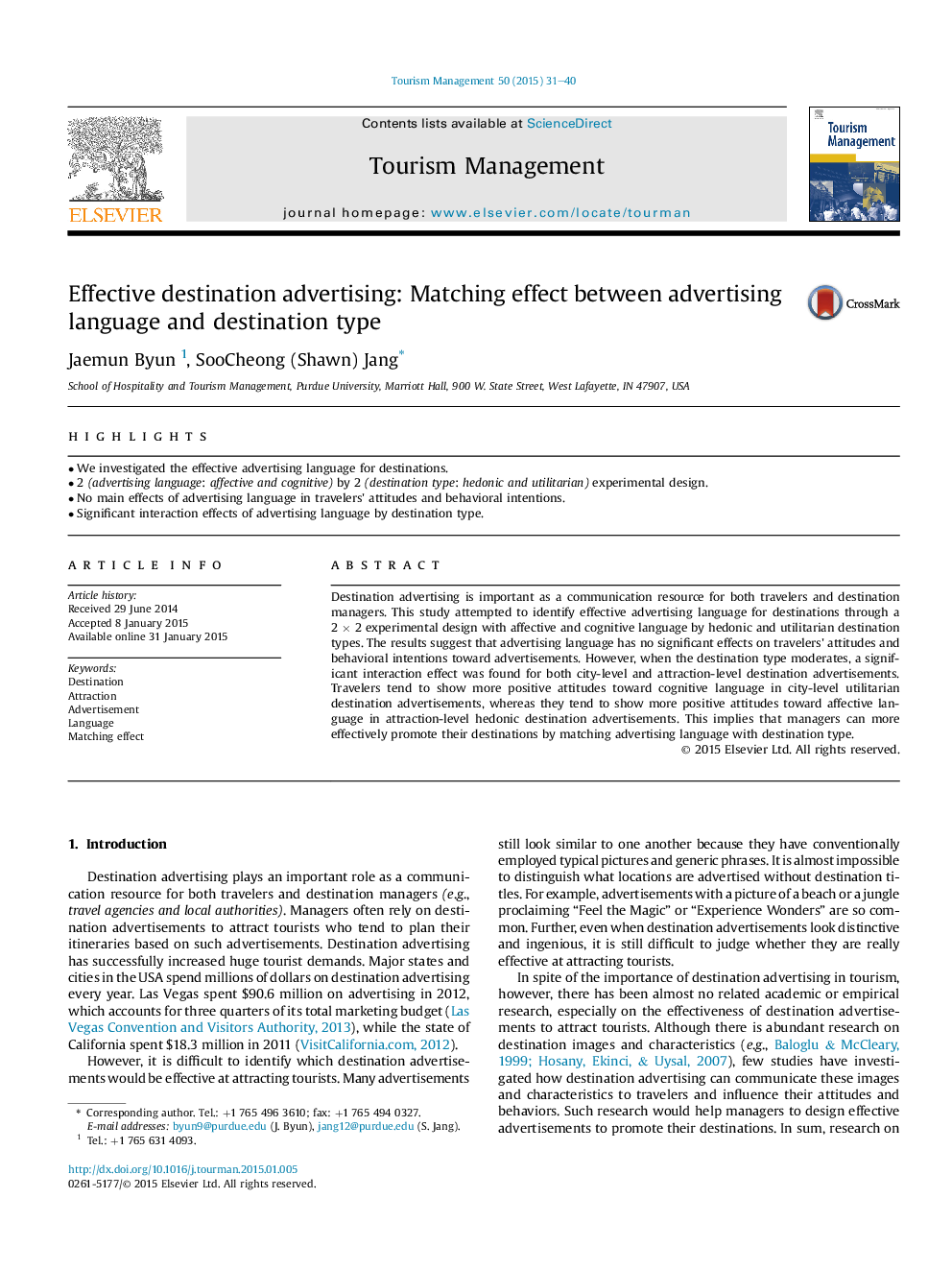| Article ID | Journal | Published Year | Pages | File Type |
|---|---|---|---|---|
| 1011902 | Tourism Management | 2015 | 10 Pages |
•We investigated the effective advertising language for destinations.•2 (advertising language: affective and cognitive) by 2 (destination type: hedonic and utilitarian) experimental design.•No main effects of advertising language in travelers' attitudes and behavioral intentions.•Significant interaction effects of advertising language by destination type.
Destination advertising is important as a communication resource for both travelers and destination managers. This study attempted to identify effective advertising language for destinations through a 2 × 2 experimental design with affective and cognitive language by hedonic and utilitarian destination types. The results suggest that advertising language has no significant effects on travelers' attitudes and behavioral intentions toward advertisements. However, when the destination type moderates, a significant interaction effect was found for both city-level and attraction-level destination advertisements. Travelers tend to show more positive attitudes toward cognitive language in city-level utilitarian destination advertisements, whereas they tend to show more positive attitudes toward affective language in attraction-level hedonic destination advertisements. This implies that managers can more effectively promote their destinations by matching advertising language with destination type.
